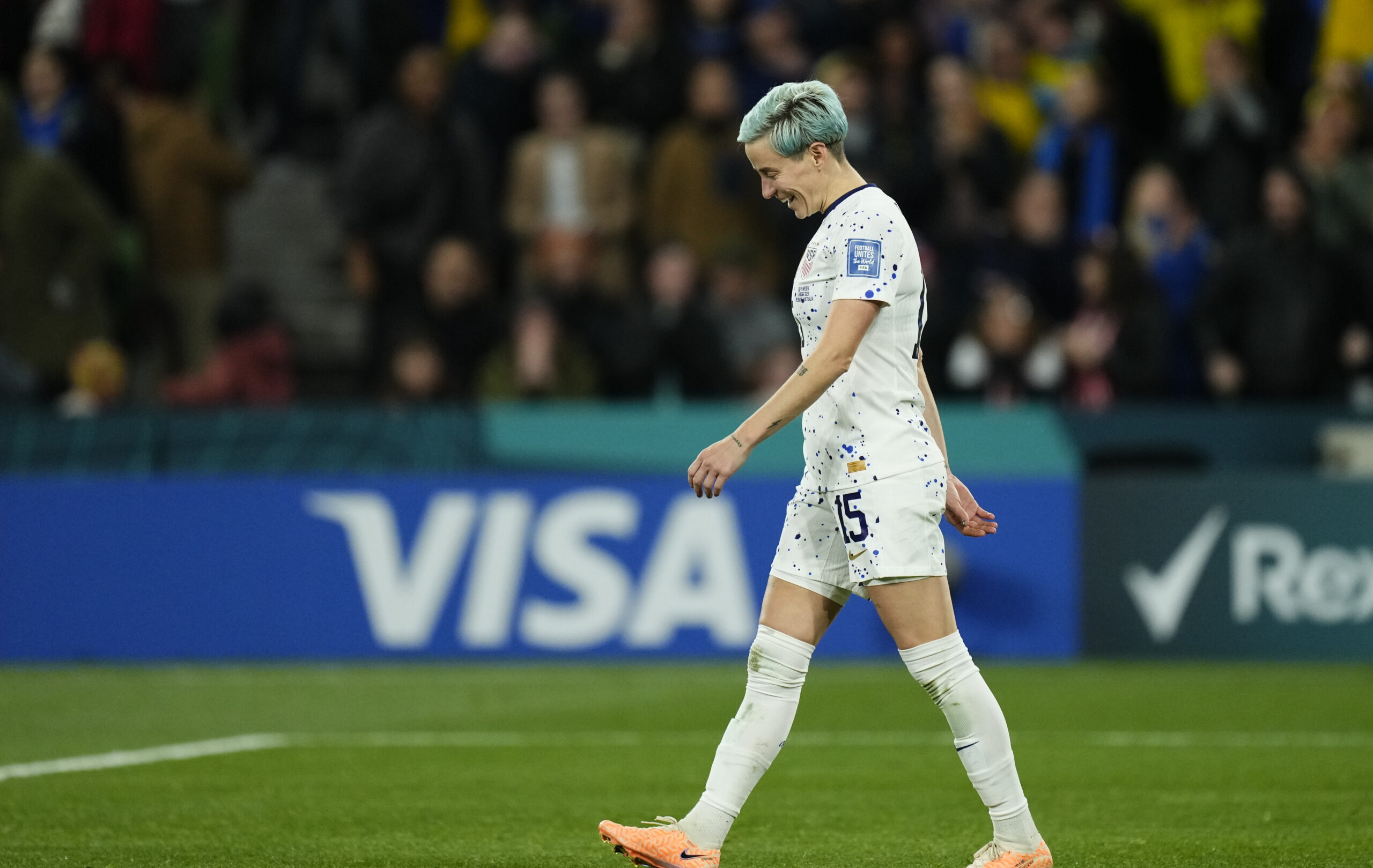Loser Mindset
Men’s and women’s soccer are different sports.

Megan Rapinoe cost the United States Women’s National Team its season when she missed a penalty kick late in the team’s World Cup round-of-sixteen match against Sweden. Her kick overshot the goal entirely, something soccer fans tell me is rare for players at the professional level.
Mistakes like that often linger with athletes for years, sometimes decades. Jackie Smith, the Hall of Fame Dallas Cowboys tight end who dropped a would-be touchdown in Super Bowl XIII, was reportedly haunted by the gaffe into his eighties. Rick Ankiel, the pitching phenom who suddenly and humiliatingly lost the ability to throw a baseball in the 2000 National League Divisional Series, pounded vodka and would throw baseballs against a backyard cinder-block wall for hours before ultimately resurrecting his career as an outfielder. Bill Buckner, the star first-baseman whose infamous error cost the Red Sox Game six of the 1986 World Series, seriously considered declining the team’s invitation to throw out the ceremonial first pitch at Fenway Park more than two decades after the game.
I’m not suggesting Rapinoe become an alcoholic, or live with crippling regret for decades. I’m not suggesting she needs to take responsibility for what is ultimately a team loss. I’m not even suggesting she needs to care. But she and her teammates would be treated differently if they were men.
Obviously, Rapinoe and her teammates have been mocked by conservatives online. They are being mocked because conservatives don’t like Rapinoe’s and the team’s politics. But that’s not what I’m talking about. I’m talking about the soft, almost therapeutic reaction to the team’s terrible performance by women’s soccer fans, which would be unthinkable if the athletes were male.
Midfielder Lindsey Horan, for example, said she is “proud of every player that stepped up to take a penalty today.” She added that it was “courageous to go take a penalty” kick.
That is the sort of thing you say to a child, not a professional athlete.
First Lady Jill Biden said after the game that the women’s team had “inspired us with your grit and determination,” and implored the team to “remember that you encourage women and girls everywhere to show up and fight for their dreams.”
She said this to a team that just lost in the round of sixteen.
ESPN’s coverage of the game included not a panel berating Rapinoe for costing America the game, but a hagiographic segment on Rapinoe’s career, activism, and “patriotism.”
The only male analogue I can think of to this type of reaction is that received by Cody Parkey, the Bears kicker who missed a potential game-winning field goal in a 2019 NFC Wild Card game. Parkey was invited on the TODAY Show to speak about his missed kick.
“I’ll keep my head held high because football’s what I do,” Parkey said. “It’s not who I am.”
The Bears cut him after the interview.
That encapsulates one of the many differences between men’s and women’s sports. Men’s sports teams and fans are vicious. They toss around all manner of insults to players who don’t perform to expectations. Women’s sports teams and fans, by contrast, live in an alternative universe.
Rapinoe, for example, asserts that point guard Sue Bird—who averaged 7.8 points per game over the course of her WNBA career—had “like, arguably the best career that anyone has ever had in the history of any sport ever.” Similarly, commentators will sometimes claim that Serena Williams could beat most male tennis players, when the opposite is true.
Normally, I wouldn’t make a big deal about those and other differences. Men and women are different; men’s and women’s sports are different; and it’s no surprise, and is actually a good thing, that men’s and women’s failures are treated differently. But Rapinoe’s legacy, as she pointed out after the game, was achieving “equal pay” with the men’s soccer team. If she is going to go there, we’ll go there, too.
In 2019, Rapinoe and members of the women’s national team brought a lawsuit against the United States Soccer Federation. They argued that the Federation was violating the 1964 Civil Rights Act by paying members of the men’s national team more than members of the women’s team.
Now, the women’s team, through their union representatives, had negotiated the terms of their contract. By their own free will and volition, they had chosen to sign it. What is more, it was revealed during discovery that he women’s team had in fact earned more than the men did between 2010 and 2018.
But the women’s team was not satisfied, and continued pressing their claim. Eventually, attorneys for the Federation were forced to examine the question at the heart of the lawsuit: Were the women being paid less for doing the same job as the men? In other words, are men’s and women’s soccer equally demanding of the athletes who participate?
The answer, obviously, is no; as former women’s team forward Carli Lloyd admitted in court, the women’s national team could not compete against men’s national teams, since competing against 16- or 17-year-old boys “is about as old as [the WNT] can go.” That claim was proven when the women’s team lost to a group of high school boys in 2017.
I have never played a sport at anything approaching Megan Rapinoe’s level, and have made plenty of mistakes in my extensive but not-very-impressive athletic career. But she and her teammates cannot have it both ways. Either they want “equality,” with all that entails, or they don’t. If it’s the former, they ought to expect the same slings and arrows male athletes face when they choke—years of anguish, public derision, and a long road to redemption. If it’s the latter, they can continue enjoying the unwavering adulation of the sports media and the First Lady.
But they’ll have to give up the the lie that they and the men’s team are playing the same sport.
The post Loser Mindset appeared first on The American Conservative.
Shop For Night Vision | See more…
Shop For Survival Gear | See more…
-
Sale!

Quick Slow Release Paramedic Survival Emergency Tourniquet Buckle
Original price was: $14.99.$7.99Current price is: $7.99. Add to cart -
Sale!

Mesh Shooting Hunting Vest with Multi Pockets
Original price was: $59.99.$39.99Current price is: $39.99. Add to cart -
Sale!

Portable Mini Water Filter Straw Survival Water Purifier
Original price was: $29.99.$14.99Current price is: $14.99. Add to cart


















































